-
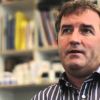 +2 +1
+2 +10:00 / 1:04:42STATIN NATION: The Great Cholesterol Cover-Up (Full Movie)
-
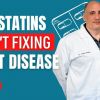 +3 +1
+3 +1What They Don't Tell You About Statins
-
 +1 +1
+1 +1Preventing Heart Disease | Medi-Station Urgent Care Miami
Heart disease is a silent predator that doesn’t discriminate by age, often striking without warning. It can affect both the young and the old, therefore, prevention is the key to a healthy heart. In this comprehensive guide, brought to you by Medi-Station Urgent Care, we delve into preventive measures tailored for different age groups. Whether you’re in your twenties or your golden years, understanding the unique challenges and interventions for your age can significantly impact your heart health. Read more: https://www.medistationurgentcare.com/a-comprehensive-guide-to-preventing-heart-disease-at-every-age
-
 +32 +1
+32 +1Ultraprocessed foods linked to heart disease, diabetes, mental disorders and early death, study finds
Eating ultraprocessed foods raises the risk of death from cardiovascular disease by 50% and contributes to developing other adverse health conditions, a study found.
-
 +26 +1
+26 +1This salt alternative could help reduce blood pressure. So why are so few people using it?
Potassium-enriched salt tastes like regular salt and you don’t need to change how you cook or season your food. You just need to switch the type of salt you buy.
-
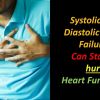 +35 +2
+35 +2Heart Failure - Do statins help or hurt?
-
 +23 +2
+23 +2NEW STUDY Proves it's BMI not Butter that increases Cholesterol on Low-Carb Diets
-
 +36 +1
+36 +1Your pacemaker and open source software
Using embedded medical technology, such as a pacemaker, defibrillator, or insulin pump? What's running inside is a complete mystery
-
 +46 +2
+46 +2Recor Medical and Otsuka Medical Devices Announce First FDA-Approved Renal Denervation System for the Treatment of Hypertension - Recor Medical
Approval of the Paradise™ Ultrasound Renal Denervation system makes innovative hypertension treatment available for the first time in the U.S. Palo Alto, Calif. – November 7, 2023 – Recor Medical, Inc. (“Recor”) and its parent company, Otsuka Medical Devices Co., Ltd. (“Otsuka Medical Devices”) today announced the U.S. Food and Drug Administration (FDA) has approved Recor’s Paradise™ Ultrasound...
-
 +48 +2
+48 +27 Alarming Ways Statins Can Cause Harm
-
 +41 +2
+41 +2Risk of incident cardiovascular disease among patients with gastrointestinal disorder: a prospective cohort study of 330,751 individuals
AbstractBackground and Aims. The associations between gastrointestinal diseases (GIs) and cardiovascular disease (CVD) were unclear. We conducted a prospective
-
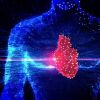 +31 +1
+31 +1Cardiologists bet on new AI heart scan to diagnose future heart conditions
Fountain Life, a health technology company, has developed an innovative artificial intelligence coronary artery scan that can detect heart conditions long before the emergence of...
-
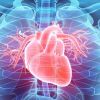 +21 +1
+21 +1Psychopathic women exhibit low cardiac defense responses, study finds
New research published in Biological Psychology explores the relationship between psychopathic fearlessness and low defensive cardiac reactivity. According to the new findings, women with high scores in the psychopathic trait of fearlessness tend to exhibit reduced heart rate changes when faced with an intense and unexpected stimulus. But this relationship was not found among men.
-
 +32 +1
+32 +1WMO warns of risk of heart attacks, deaths as heatwave intensifies
The heatwave engulfing the northern hemisphere is set to intensify this week, causing overnight temperatures to surge and leading to an increased risk of heart attacks and deaths, the World Meteorological Organization said on Tuesday.
-
 +21 +1
+21 +1Supermarket trolleys reveal heart problems in shoppers
Special sensors in the handle can detect an irregular heartbeat that raises the risk of stroke.
-
 +25 +2
+25 +2Statins stimulate atherosclerosis and heart failure: pharmacological mechanisms - PubMed
In contrast to the current belief that cholesterol reduction with statins decreases atherosclerosis, we present a perspective that statins may be causative in coronary artery calcification and can function as mitochondrial toxins that impair muscle function in the heart and blood vessels through the …
-
 +19 +1
+19 +1Cancer and heart disease vaccines ‘ready by end of the decade’
Exclusive: Pharmaceutical firm says groundbreaking jabs could save millions of lives
-
 +26 +1
+26 +1The signs of heart disease your phone can spot
Mobile phones have come a long way since the first ever cellphone call 50 years ago – they can even be used to help diagnose your health.
-
 +17 +2
+17 +2Statin therapy is not warranted for a person with high... : Current Opinion in Endocrinology, Diabetes and Obesity
lipoprotein cholesterol (LDL-C). We have assessed the value of LDL-C as a CVD risk factor, as well as effects of the LCD on other CVD risk factors. We have also reviewed findings that provide guidance as to whether statin therapy would be beneficial for individuals with high LDL-C on an LCD. Recent findings Multiple longitudinal trials have demonstrated the safety and effectiveness of the LCD, while also providing evidence of improvements in the most reliable CVD risk factors. Recent findings have also confirmed how ineffective LDL-C is in predicting CVD risk. Summary Extensive research has demonstrated the efficacy of the LCD to...
-
 +12 +1
+12 +1'Keto-like' diet may be associated with a higher risk of heart disease, according to new research
Most health experts say the trendy keto diet, which bans carbohydrates to make your body burn fat for fuel, cuts out healthy food such as fruit, beans and legumes and whole grains.
Submit a link
Start a discussion




















